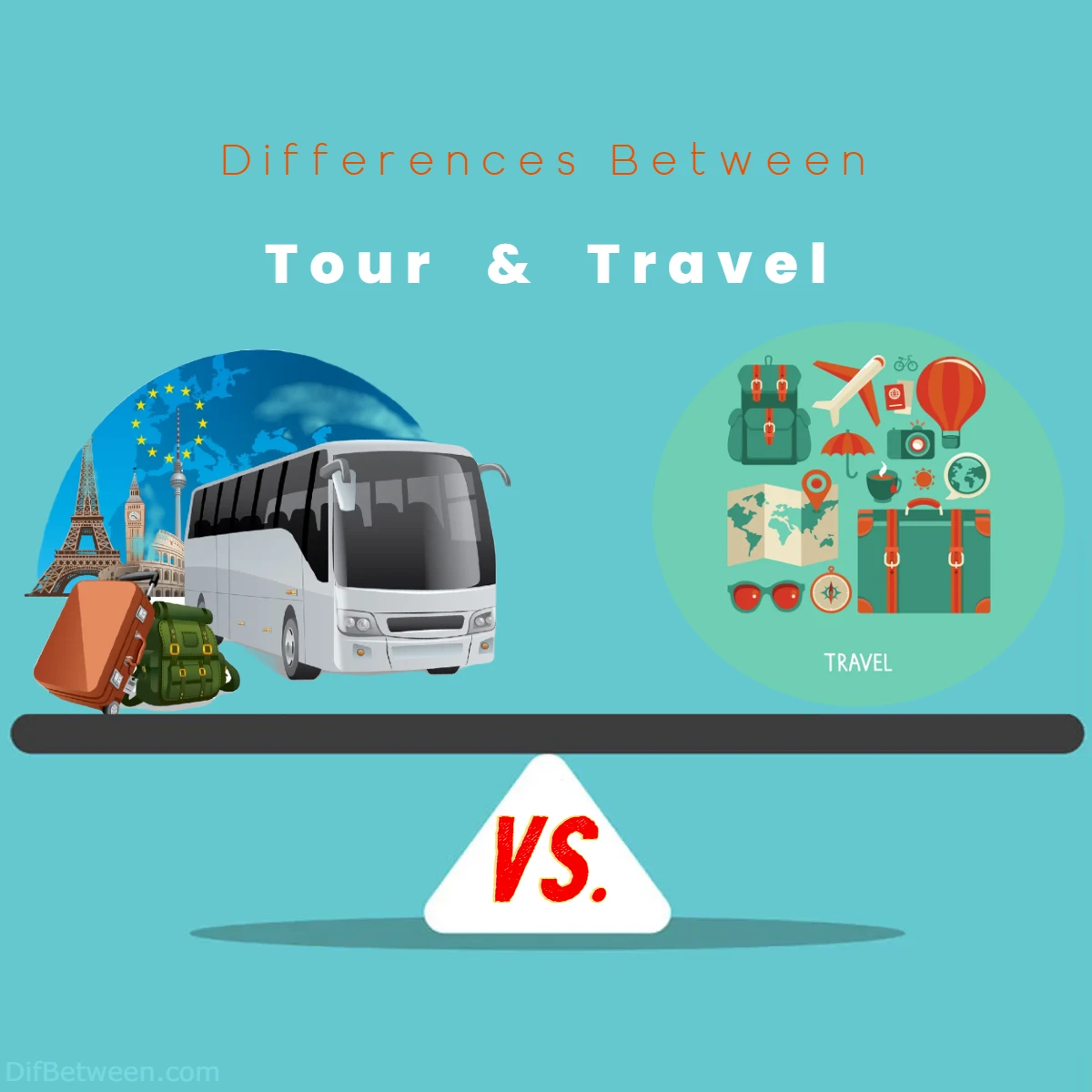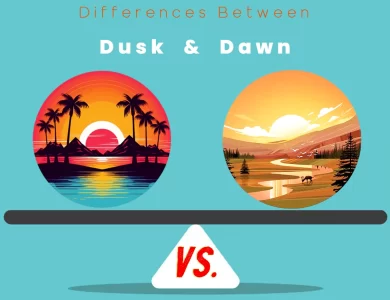
| Aspect | Guided Tours | Independent Travel |
|---|---|---|
| Definition and Purpose | Organized group experiences | Independent exploration |
| Itinerary and Flexibility | Pre-planned schedules | Personalized agendas |
| Cost Considerations | Fixed expenses | Variable expenses |
| Group Dynamics | Camaraderie and structure | Individual freedom |
| Local Interaction and Immersion | Limited engagement | Deep cultural experiences |
| Accommodation | Pre-arranged lodging | Choice and spontaneity |
| Transportation | Coordinated travel | Diverse transport options |
| Duration of Stay | Set timeframes | Flexible duration |
| Travel Documentation | Often handled by the operator | Personal responsibility |
| Safety and Security | Group protection | Individual vigilance |
| Personal Preferences | Ideal for those seeking convenience | Suited to adventurers and explorers |
| Cultural Enrichment | Guided cultural experiences | Deeper immersion, authentic interactions |
| Environmental Impact | Lower per capita footprint | Personal choices, responsible travel |
| Language Barrier | Multilingual guides, communication support | Language learning, cultural immersion |
| Food and Dining | Pre-arranged meals, convenience | Culinary exploration, local flavors |
| Photography and Souvenirs | Guided photo stops, shopping advice | Personalized photography, unique finds |
| Health and Wellness | Group activities, access to care | Personalized wellness, self-care |
| Accessibility | Catering to various needs, inclusive | Adventurous opportunities, flexibility |
| Travel Companions | Group of strangers, potential friends | Choice of companions, compatibility |
| Off-the-Beaten-Path Exploration | Mainstream destinations | Remote locations, unique discoveries |
Picture yourself standing at the crossroads of ‘Tour’ Avenue and ‘Travel’ Boulevard. Guided tours, like seasoned storytellers, beckon you with structured itineraries and the warm embrace of camaraderie. Travel, on the other hand, lays out a canvas where you hold the brush, letting your heart paint your own adventure.
Differences Between Tour and Travel
The main differences between a tour and travel lie in the level of structure and control over your journey. Tours are organized group experiences with pre-planned itineraries, offering convenience and guidance but potentially limiting flexibility and personalization. In contrast, travel involves independent exploration, allowing you to create a personalized agenda, make spontaneous decisions, and immerse yourself deeply in local cultures. While tours offer structured experiences and group camaraderie, independent travel provides the freedom to set your own pace, choose accommodations, and interact with locals. These key distinctions make it essential to consider your preferences and priorities when deciding between a tour or independent travel.
1. Definition and Purpose
Tour:
A tour typically refers to a pre-organized journey where a group of travelers follows a set itinerary. These itineraries are curated by tour operators and include specific destinations, activities, and accommodations. The primary purpose of a tour is to provide a structured and convenient way to explore various places and attractions.
Tours often have a theme, such as cultural, adventure, or historical, and they come with a guide or tour leader who facilitates the trip, offers insights, and manages logistics.
Travel:
Travel, on the other hand, is a broader term that encompasses all forms of moving from one place to another, be it for leisure, work, exploration, or any other reason. It involves independent decision-making and planning, allowing travelers to craft their own unique experiences.
Travel can involve visiting popular tourist destinations, but it also includes the freedom to explore off-the-beaten-path locations, immerse yourself in local cultures, and engage with the unknown.
2. Itinerary and Flexibility
Tour:
Tours are known for their detailed itineraries, which outline every aspect of the journey, from the moment you arrive at your destination to when you depart. These itineraries are created by the tour operator and are designed to maximize the experience for the group. They often include specific times for sightseeing, meals, and rest.
The advantage of having a structured itinerary is that it ensures you won’t miss out on key attractions or activities, and all the logistics are taken care of for you.
Travel:
Travel allows for a high degree of flexibility. You have the freedom to plan your own itinerary, choosing when and where you want to go. This flexibility means you can adapt to unexpected opportunities, extend your stay in a place you love, or change your plans on the fly.
However, with great freedom comes great responsibility. You need to research and plan your trip in advance to make the most of your travel experience.
Table: Pros and Cons of Itinerary and Flexibility
| Aspect | Tour | Travel |
|---|---|---|
| Itinerary | Well-structured, predetermined plan | Self-designed, adaptable schedule |
| Pros | Convenience, no planning required | Personalization, spontaneous choices |
| Cons | Limited freedom, rigid schedule | Requires more planning and research |
3. Cost Considerations
Tour:
Tours typically come with a fixed price that covers most expenses, including accommodations, transportation, meals, and guided activities. The advantage of this approach is that you know your total cost upfront, making budgeting more straightforward.
However, tours may not always be cost-effective if you prefer more budget-conscious options or if you want to control your spending on specific aspects of your trip.
Travel:
The cost of travel can vary significantly based on your choices. You have the flexibility to decide on the level of luxury or budget-friendliness that suits you. Travel expenses include flights, accommodations, meals, and activities, and you can adjust these according to your preferences and budget.
While travel allows for cost savings in some areas, it requires a good understanding of how to manage expenses effectively.
Table: Pros and Cons of Cost Considerations
| Aspect | Tour | Travel |
|---|---|---|
| Cost Structure | Fixed, inclusive pricing | Variable, customized budget |
| Pros | Convenient, predictable expenses | Cost control, flexibility |
| Cons | Limited budget choices, potential add-ons | Requires budget management and planning |
4. Group Dynamics
Tour:
Tours involve traveling with a group of like-minded individuals who share a common interest or goal. This group dynamic can enhance the experience, fostering new friendships and creating a sense of camaraderie.
On the flip side, group travel means you’ll need to adapt to the pace and preferences of the group, which might limit your independence and personal choices.
Travel:
Traveling independently means you have full control over your itinerary and decisions. You can explore at your own pace, whether it’s fast-paced sightseeing or leisurely immersion in local culture. This offers a more personalized experience, but it may lack the social aspects of group travel.
Table: Pros and Cons of Group Dynamics
| Aspect | Tour | Travel |
|---|---|---|
| Group Dynamics | Camaraderie, shared experiences | Individual freedom, personal choices |
| Pros | Social interaction, new friendships | Full control over your journey |
| Cons | Less individual freedom | Limited social interaction |
5. Local Interaction and Immersion
Tour:
Tours provide an introduction to local culture and history through guided activities and interactions with locals. However, the scope of these interactions is often limited, as the tour’s schedule may be tightly packed, leaving little time for spontaneous exploration.
The advantage of tours is that you can gain insights from local guides and experts, but you may miss out on more in-depth, authentic experiences.
Travel:
Travel allows for deeper immersion in local culture and communities. You have the freedom to engage with locals, participate in festivals, and explore hidden gems that are not part of mainstream tourist itineraries.
This approach often leads to a richer, more authentic understanding of the places you visit.
Table: Pros and Cons of Local Interaction and Immersion
| Aspect | Tour | Travel |
|---|---|---|
| Local Interaction | Guided, limited interactions | Unscripted, deep immersion |
| Pros | Expert insights, structured experiences | Authentic, off-the-beaten-path encounters |
| Cons | Limited spontaneity, less immersive | Requires initiative, more planning |
6. Accommodation
Tour:
Tours typically include pre-arranged accommodations at hotels or resorts chosen by the tour operator. The advantage is that you don’t need to worry about finding a place to stay, and the quality of accommodations is generally assured.
However, your choices are limited to what the tour provides, and you may not have control over the specific location or type of lodging.
Travel:
When you travel independently, you have the flexibility to choose your accommodations. This can range from luxury hotels to budget hostels, boutique guesthouses, or even unique Airbnb rentals. You can tailor your choices to your preferences and budget.
The downside is that you’re responsible for booking your own accommodations, which requires research and planning.
Table: Pros and Cons of Accommodation
| Aspect | Tour | Travel |
|---|---|---|
| Accommodation | Pre-arranged, assured quality | Freedom to choose, personalized |
| Pros | Convenience, quality assurance | Customization, diverse options |
| Cons | Limited choice, less personal | Requires more planning, research |
7. Transportation
Tour:
Tours typically include transportation arrangements, such as flights, buses, or trains, to get you from one destination to another. This ensures that all logistics are taken care of, and you can focus on enjoying the journey.
However, you may have limited control over the mode of transportation or the flexibility to change your travel plans.
Travel:
Independent travelers have the flexibility to choose their preferred modes of transportation. This can include anything from public transport and rental cars to cycling, walking, or even hitchhiking.
The ability to make transportation decisions on the go allows for spontaneity and exploration off the beaten path. However, it requires more planning and may come with unexpected challenges.
Table: Pros and Cons of Transportation
| Aspect | Tour | Travel |
|---|---|---|
| Transportation | Pre-arranged, hassle-free transport | Freedom to choose, varied options |
| Pros | Convenience, logistical support | Spontaneity, unique travel experiences |
| Cons | Limited choices, less flexibility | Requires more planning, potential challenges |
8. Duration of Stay
Tour:
Tours come with predetermined start and end dates, and the duration of your stay in each location is usually fixed. This can be convenient for those with limited time to travel and who want to see as much as possible in a short span.
However, it may feel rushed, and you might not have the opportunity to extend your stay if you find a place particularly captivating.
Travel:
Travel allows for greater flexibility in terms of the duration of your stay. You can decide to extend your stay in a location you love or move on more quickly if you wish. This adaptability is ideal for those who prefer a relaxed, less-rigid schedule.
But it also requires more careful planning to ensure you allocate enough time for each destination.
Table: Pros and Cons of Duration of Stay
| Aspect | Tour | Travel |
|---|---|---|
| Duration of Stay | Fixed, predetermined | Flexible, adaptable |
| Pros | Efficient use of time, varied experiences | Relaxed pace, extended exploration |
| Cons | Limited time in each place, rushed feel | Requires more planning, time management |
9. Travel Documentation
Tour:
When you embark on a tour, much of the travel documentation and logistics are handled by the tour operator. This can include visa arrangements, permits, and other necessary paperwork. It simplifies the process for travelers who may not be familiar with the requirements of the destination.
However, you may have less control and awareness of the documentation process.
Travel:
Independent travelers are responsible for handling their own travel documentation. This means researching visa requirements, securing necessary permits, and ensuring all paperwork is in order before departure.
While this approach provides more control, it also requires a greater degree of personal responsibility and knowledge.
Table: Pros and Cons of Travel Documentation
| Aspect | Tour | Travel |
|---|---|---|
| Travel Documentation | Handled by the tour operator, simplified process | Personal responsibility, greater control |
| Pros | Less hassle, expert assistance | Self-awareness, more control over documentation |
| Cons | Limited awareness, reliance on others | Requires research, time, and organization |
10. Safety and Security
Tour:
Tours often come with the security of a group environment. You’ll have a guide who is knowledgeable about the destination and can provide assistance in case of emergencies. Group travel can provide a sense of safety and protection, particularly in unfamiliar or potentially risky locations.
However, it’s essential to remember that safety is not guaranteed, and you should still exercise caution and be aware of your surroundings.
Travel:
When you travel independently, safety and security are your personal responsibility. You must research the safety conditions of your chosen destinations, take appropriate precautions, and be prepared to handle emergencies on your own.
This approach demands greater awareness and vigilance, but it also allows you to make decisions that align with your comfort level.
Table: Pros and Cons of Safety and Security
| Aspect | Tour | Travel |
|---|---|---|
| Safety and Security | Group environment, guide assistance | Personal responsibility, individual choices |
| Pros | Sense of safety, guidance in emergencies | Personal control, adaptability |
| Cons | Safety not guaranteed, reliance on others | Requires awareness, vigilance |
11. Personal Preferences
Tour:
Tours are ideal for individuals who seek convenience and structure in their travel experiences. They are suitable for those who prefer not to deal with the hassles of planning, logistics, and documentation. Tours are often chosen by travelers with limited time or those who want to explore a specific theme or destination without the need for extensive research.
Travel:
Independent travel is best suited to adventurers, explorers, and those who value the freedom to create their own unique journeys. It’s an excellent choice for individuals who enjoy researching and planning their trips, have the time for flexible itineraries, and want to deeply immerse themselves in different cultures.
In the end, the choice between a tour and travel depends on your personal preferences and what kind of experience you desire.
12. Cultural Enrichment
Tour:
Tours often come with guided experiences that aim to provide cultural enrichment. These experiences can include visits to historical sites, museums, and cultural performances. Guides are knowledgeable about the local culture and can provide insights, making it an educational journey.
However, the depth of cultural immersion may be limited, as the tour group often moves quickly from one attraction to another.
Travel:
Independent travelers have the opportunity for deeper cultural immersion. They can engage in more extended interactions with locals, participate in local traditions and festivals, and even live with local families in homestays. This approach allows for a richer understanding of the culture.
Table: Pros and Cons of Cultural Enrichment
| Aspect | Tour | Travel |
|---|---|---|
| Cultural Enrichment | Guided cultural experiences, education | Deeper immersion, authentic interactions |
| Pros | Knowledgeable guides, structured learning | Rich cultural understanding, local experiences |
| Cons | Limited time for exploration, less depth | Requires more initiative, time investment |
13. Environmental Impact
Tour:
Tours often have a lower environmental impact per traveler, as they consolidate transportation and accommodations for a group. Operators may prioritize eco-friendly practices in their itineraries and accommodations, reducing the carbon footprint.
However, some tours may involve mass tourism, which can contribute to overtourism in certain destinations.
Travel:
Independent travelers have the opportunity to make more sustainable choices by selecting eco-friendly accommodations, using public transport, and engaging in responsible tourism practices. They can be more conscious of their impact on the environment and contribute positively to the local community.
Table: Pros and Cons of Environmental Impact
| Aspect | Tour | Travel |
|---|---|---|
| Environmental Impact | Group consolidation, eco-friendly options | Personal choices, responsible travel |
| Pros | Lower per capita footprint, operator initiatives | Sustainable choices, local contributions |
| Cons | Potential for overtourism, less control | Requires research, conscientious decisions |
14. Language Barrier
Tour:
Tours often come with multilingual guides or tour leaders who can bridge the language barrier. This can be particularly helpful in destinations where English or your native language is not widely spoken. It ensures smoother communication and understanding.
However, you may miss the opportunity to learn and practice the local language.
Travel:
Independent travel may expose you to more extensive language barriers. While this can be a challenge, it also offers a valuable opportunity to learn the local language, even if it’s just a few basic phrases. Engaging with locals in their language can enhance your travel experience.
Table: Pros and Cons of Language Barrier
| Aspect | Tour | Travel |
|---|---|---|
| Language Barrier | Multilingual guides, communication support | Language learning, cultural immersion |
| Pros | Easier communication, reduced stress | Language skills, deeper cultural insights |
| Cons | Miss language learning opportunities | Potential communication challenges |
15. Food and Dining
Tour:
Tours often include pre-arranged meals at specific restaurants or as part of the package. While this can be convenient, it may limit your culinary exploration. The menu choices are typically curated for the group’s taste.
However, it’s an excellent way to sample local cuisine without the hassle of researching where to eat.
Travel:
Independent travelers have the freedom to explore local eateries and markets, allowing for a more diverse and authentic culinary experience. You can experiment with street food, try regional specialties, and engage with locals about their food culture.
The downside is that you need to invest time in researching dining options.
Table: Pros and Cons of Food and Dining
| Aspect | Tour | Travel |
|---|---|---|
| Food and Dining | Pre-arranged meals, convenience | Culinary exploration, local flavors |
| Pros | No need for restaurant research | Authentic dining experiences, local cuisine |
| Cons | Limited menu choices, group preferences | Requires dining research, time investment |
16. Photography and Souvenirs
Tour:
Tours often have designated stops for photography and shopping for souvenirs. Guides may recommend specific spots for capturing iconic images and provide insights into the best places to buy local products.
However, these stops can be limited, and you may feel rushed.
Travel:
Independent travel allows you to set your own pace for photography and souvenir shopping. You can linger at a scenic location to capture the perfect shot or spend hours exploring local markets for unique souvenirs.
This freedom enhances the quality of your travel photos and the authenticity of your souvenirs.
Table: Pros and Cons of Photography and Souvenirs
| Aspect | Tour | Travel |
|---|---|---|
| Photography and Souvenirs | Guided photo stops, shopping advice | Personalized photography, unique finds |
| Pros | Guidance, convenience, photo opportunities | Quality photos, authentic souvenirs |
| Cons | Limited time, rushed pace | Requires time, exploration |
17. Health and Wellness
Tour:
Tours often have a pre-established approach to health and wellness. They may include group activities like yoga or group exercise and ensure access to medical assistance if needed.
However, the group setting may not cater to individual wellness needs or preferences.
Travel:
Independent travelers can personalize their approach to health and wellness. You can choose activities that align with your interests, visit wellness retreats, or simply take time for relaxation and self-care.
This approach allows you to focus on your individual well-being.
Table: Pros and Cons of Health and Wellness
| Aspect | Tour | Travel |
|---|---|---|
| Health and Wellness | Group activities, access to care | Personalized wellness, self-care |
| Pros | Group support, structured activities | Individual wellness, self-paced |
| Cons | Limited personalization, group dynamics | Requires planning, self-awareness |
18. Accessibility
Tour:
Tours are often designed to be accessible to a wide range of individuals, including those with mobility challenges. Operators ensure that accommodations, transportation, and activities cater to different needs.
However, this may limit adventurous activities and off-the-beaten-path exploration.
Travel:
Independent travelers have the freedom to explore destinations that may not be fully accessible. They can engage in more physically demanding activities or visit remote locations that may be challenging for those with mobility restrictions.
This offers more adventurous opportunities but requires careful planning for accessibility.
Table: Pros and Cons of Accessibility
| Aspect | Tour | Travel |
|---|---|---|
| Accessibility | Catering to various needs, inclusive | Adventurous opportunities, flexibility |
| Pros | Inclusivity, convenience for all travelers | Freedom to explore diverse locations |
| Cons | Limited adventure, less remote exploration | Requires accessibility research, planning |
19. Travel Companions
Tour:
When you choose a tour, you are likely to travel with a group of strangers who share similar interests. This can lead to new friendships and memorable experiences. It’s a great opportunity to meet like-minded people from around the world.
However, there is always the possibility of personality clashes or differing travel styles within the group.
Travel:
Independent travel allows you to select your travel companions. You can choose to travel solo, with a partner, with friends, or with family. This approach ensures compatibility and a tailored travel experience.
On the flip side, you may miss out on the social aspect of meeting new people while on the road.
Table: Pros and Cons of Travel Companions
| Aspect | Tour | Travel |
|---|---|---|
| Travel Companions | Group of strangers, potential friends | Choice of companions, compatibility |
| Pros | Social opportunities, diverse interactions | Tailored travel experience, flexibility |
| Cons | Potential personality clashes, less choice | Limited social encounters, fewer interactions |
20. Off-the-Beaten-Path Exploration
Tour:
Tours are typically designed to cover popular tourist destinations and attractions. While these are often must-see places, tours may not prioritize off-the-beaten-path exploration or unique, hidden gems.
If you’re seeking to explore lesser-known places, you might need to consider specialty tours that focus on specific niches.
Travel:
Independent travel allows for complete freedom in choosing destinations. You can venture off the beaten path, explore remote locations, and discover hidden gems that are not part of mainstream tourism.
This is a rewarding experience for those who crave adventure and unique discoveries.
Table: Pros and Cons of Off-the-Beaten-Path Exploration
| Aspect | Tour | Travel |
|---|---|---|
| Off-the-Beaten-Path Exploration | Mainstream destinations, iconic sights | Remote locations, unique discoveries |
| Pros | Iconic attractions, must-see places | Adventure, exploration, hidden gems |
| Cons | Limited niche options, less uniqueness | Requires research, self-initiative, navigation |
Tour or Travel: Which One is Right Choose for You?
When it comes to planning your next adventure, one of the most important decisions you’ll make is whether to embark on a guided tour or set off on an independent journey. Each option offers a distinct set of advantages and considerations, and the choice ultimately depends on your personal preferences, travel style, and goals. Let’s explore some key factors to help you decide which one is the right choice for you.
You Might Prefer a Guided Tour If:
- You Crave Convenience: Guided tours provide a hassle-free experience. Everything from itineraries to accommodations, transportation, and meals is pre-arranged. This convenience is ideal for travelers who don’t want to deal with the logistics of planning a trip.
- You Have Limited Time: If you’re working with a tight schedule and want to see as much as possible in a short span, a guided tour can be efficient. The itinerary is designed to maximize your time and cover the must-see attractions.
- You Enjoy Structured Learning: Guided tours often come with knowledgeable guides who provide insights into the destinations you visit. If you appreciate learning about the history, culture, and local facts, this can be a valuable part of your journey.
- You Prefer Group Experiences: Tours are an excellent way to meet new people and form new friendships. Traveling with a group can enhance your experience and create a sense of camaraderie.
- You Want Security: Group travel provides a level of security. You’ll have a guide who can assist in emergencies, and the group environment can be comforting, especially in unfamiliar or potentially risky locations.
You Might Prefer Independent Travel If:
- You Crave Freedom: Independent travel offers the freedom to create your own itinerary and make decisions on the fly. You can adapt to unexpected opportunities, extend your stay in a place you love, or change your plans as you go.
- You Seek Deep Immersion: If you’re passionate about immersing yourself in local cultures, exploring off-the-beaten-path destinations, and engaging with the unknown, independent travel is the way to go.
- You Value Personalization: Independent travelers can personalize their experiences, choosing accommodations that fit their preferences, dining at local eateries, and exploring unique activities that align with their interests.
- You Want to Travel at Your Own Pace: Whether you prefer a fast-paced sightseeing adventure or a leisurely exploration of a new place, independent travel lets you set your own pace.
- You Enjoy Solitude or Traveling with Companions: Independent travel allows you to choose whether to travel solo, with a partner, with friends, or with family. It ensures compatibility and a tailored travel experience.
In conclusion, the choice between a guided tour and independent travel is a deeply personal one. Some travelers enjoy the convenience and structure of a tour, while others relish the freedom and flexibility of independent exploration. Consider your travel goals, interests, and comfort level, and select the approach that resonates with you. Remember, no matter which path you choose, the world is full of adventure and discovery, waiting for you to explore and savor.
FAQs
The main difference is that a tour is an organized group experience with a pre-planned itinerary, while travel involves independent exploration and personalized agendas.
Tours often have fixed expenses that cover accommodations, meals, and activities, making them convenient but potentially more expensive. Independent travel allows for more budget flexibility.
Tours provide some cultural insights, but the scope of interaction is often limited. Independent travel offers deeper cultural immersion as you can engage with locals on your terms.
Tours offer a group environment and guide support, providing a sense of security. Independent travel requires personal vigilance, so safety depends on your awareness and choices.
Independent travel is better suited for adventurers as it offers the freedom to explore off-the-beaten-path destinations and create unique experiences. Tours may be more structured.
Extending your stay during a tour is usually limited by the pre-set itinerary. Independent travel allows for more flexibility in the duration of your stay.
Tours include pre-arranged accommodations chosen by the operator. Independent travel provides full control to choose lodging according to your preferences and budget.
Tours are often designed to be more accessible, but independent travel offers the freedom to explore remote locations, which may not be fully accessible.
Tours often provide multilingual guides. In independent travel, you may encounter more language barriers, but it’s an opportunity to learn and practice the local language.
Tours are a convenient choice for those with limited time, as they require less planning and organization. Independent travel demands more pre-trip preparation.
Read More:
Contents
- Differences Between Tour and Travel
- 1. Definition and Purpose
- 2. Itinerary and Flexibility
- 3. Cost Considerations
- 4. Group Dynamics
- 5. Local Interaction and Immersion
- 6. Accommodation
- 7. Transportation
- 8. Duration of Stay
- 9. Travel Documentation
- 10. Safety and Security
- 11. Personal Preferences
- 12. Cultural Enrichment
- 13. Environmental Impact
- 14. Language Barrier
- 15. Food and Dining
- 16. Photography and Souvenirs
- 17. Health and Wellness
- 18. Accessibility
- 19. Travel Companions
- 20. Off-the-Beaten-Path Exploration
- Tour or Travel: Which One is Right Choose for You?
- FAQs






